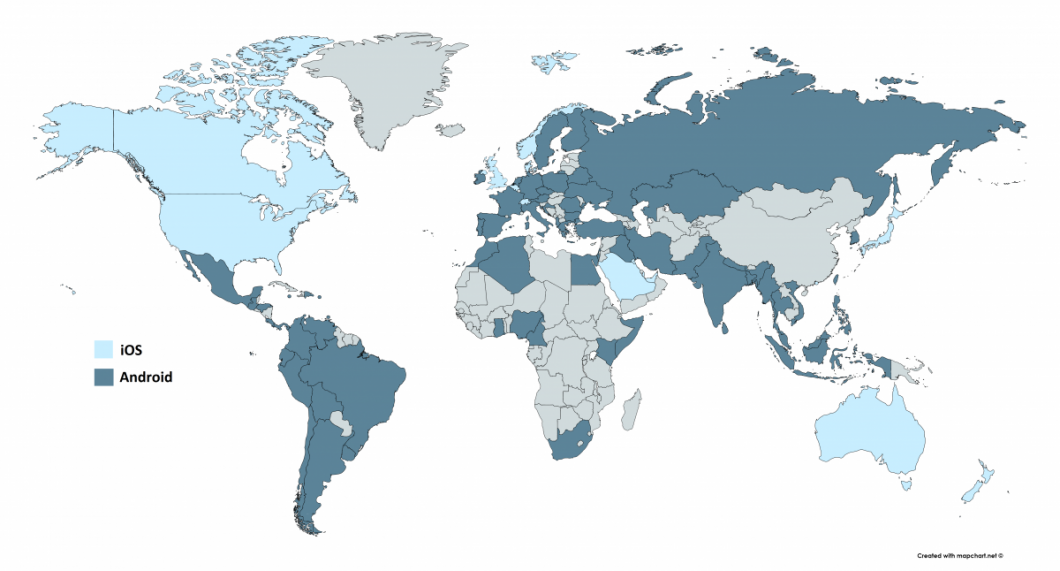The remark “There is an app for that” is so common nowadays and underlines the deep influence of mobile apps in our lives. But, when Apple went on to register a trademark for it, you knew it was more than that.
So, you have decided to go digital and create an online identity for your business. But, you are stuck with the difficulty of choosing between a mobile app and a website. Eager to get a quick solution? Turns out, in most of the cases, both mobile app and website are not mutually exclusive but are complementary, with each serving a different purpose and target segment. So, there isn’t an answer that is universally correct. It depends on various different things.
……………………………………………………………………………………………………
App First
Some cases are better served with mobile apps, especially the ones that need frequent or repeated use. For instance, e-commerce, food ordering, social media, chat, news, travel, productivity-related applications, utility apps, real-time tracking like stock apps.
App Only
Then there are those which, because of their dependency on the underlying hardware, can only be served through mobile apps. For instance, home automation, alarm, games, navigation apps, mobile wallets, AR(Augmented Reality) & VR(Virtual Reality) apps and games.
Website or Mobile App?
For the sake of this article, the above two categories need not be considered, for the obvious reason that the mobile app seems to be the default choice for them. However, for categories that can be served equally well by both the mediums, there are certain inherent advantages of using either an app or a website. Let’s understand them from the perspectives of a user and a business.
……………………………………………………………………………………………………
User’s point of view, what really matters.
1. Convenience
Websites are convenient for informative and non-frequent use like finding details about a business, exploring a place, looking for services, R&D for projects, and yes, deciding the best app to download for a particular need. Basically, all the Google searches we do can be better served by a website. Mobile apps seem to be more convenient for activities that are performed more frequently. The initial hurdles of downloading and setting things up might seem daunting. But things ease out subsequently, and users get pulled into a more convenient, personalized, and engaging experience.
2. Data Consumption and Offline Mode
To use a mobile app one needs to download it first, an act pulls into the mobile resources that the app will need to function -images, icons, layout inbuilt, etc. Once done, there isn’t much left to download during consumption, which results in quicker loading and sometimes offline access too. In contrary to this, you can’t even load the website without an internet connection.
For mobile apps, during the offline mode, tasks can be queued up in batches and then be pushed to the server when online. Such a sophisticated way of dealing with the offline mode isn’t just possible in case of a website.
3. Performance
For CPU intensive tasks such as games, heavy graphics layouts, complex lists, mobile app scores way higher than a website for its close proximity to the device hardware.
4. Updates
Whether it’s an app or a website, it gets developed alongside. Hence the user expects updates. Pushing an update to the website is easy, you do it on the server-side and users get a brand new look and feel next time they check you out. If you can strategically manage the downtime, there is not much that bothers the user. On the other hand, the whole app needs to be downloaded all over again to get the update. Not to mention, the review process apps go through to be live in the app store which takes time.
……………………………………………………………………………………………………
Business’s point of view
1. Customer base – Existing & Potential
Initial acquisition cost is high for mobile apps. You need to get the user to download your app first, to be able to use it. In contrary to this, anyone can visit your website through any browser and from any device having a browser. People can even find your website through Google search. This opens up a lot of possibilities for your business. In short, you can serve both existing and potential customers through a website. Whereas, mobile apps can only serve the existing user base.
2. User Engagement
Re-engaging with users using rich and powerful notifications and getting meaningful insights through analytics is better done with mobile apps than websites.
3. Learning Curve and Cost of Development
Mobile apps are highly customizable. In terms of features and capabilities, they can do a whole lot of stuff that a website can’t do, thanks to the close hardware integration. This, combined with the tons of possible unique use cases, helps create an ever-increasing range of UI/UX and feature possibilities. Thus, you have a steep learning curve even if you need to build a basic app. In other words, there is no such thing called an ‘App builder’. Even if you can find one, chances are, it will let you create a basic HTML type webpage app or an app functioning as a container of your website. In that case, you are better off creating a responsive website instead. Not to mention the whole point of creating an app is to create a tool for your users and you want it to be fully customizable in the first place.
On the other hand, a single screen website with some basic viewable features can be made using website builders needing almost no technical skills. A few examples would include blogging sites, personal/resume type websites, a website showing just the details of your business. However, to create a customized and full-featured website, you need a lot of technical skills.
4. Multiple platform support
Because of the way they have been distributed around the globe, you can’t ignore any of the 2 major platforms of the mobile OS- iOS & Android. People in the US, Canada, Australia, and European nations prefer iOS, whereas, Android is the global leader in terms of market share. Apart from this, iOS users are generally high paying customers in any region. This essentially means, to get high ARPU(Average Revenue Per User) you need to support iOS and to get to the masses, you need to support Android.

(credit: https://deviceatlas.com/blog/android-v-ios-market-share)
Supporting 2 completely independent OS will result in higher development and maintenance costs. On the other hand, a single set of code will result in a website which works universally for every device with a browser.
……………………………………………………………………………………………………
Website vis-à-vis Mobile Apps! Can one replace the other?
No matter how tightly websites and apps are attached, they are uniquely placed with each serving a purpose different from the other. However, the matter of the fact is that they cannot replace each other. We might see things in the future that will bridge the gap between them both from the business and the user’s point of view. In fact, we already have things like Progressive Web Apps and tools like Flutter and React which are trying to bring websites and apps closer in terms of use and development.
Even Technologies like AR which is by far better served by mobile apps are finding their way to websites. By creating a new file type USDZ, Apple has made it possible for websites to enable users to try 3D virtual objects in their Physical space. This creates a compelling possibility for E-Commerce websites. Of course, for this to work, the website needs to be viewed on a mobile phone/iPad with a camera supporting AR.
To draw an analogy, mobile app and website are like parallel lines, they remain close to each other without overlapping in terms of their existence. We might speculate about their getting merged in the distant future but that distant future might just never come.
Final Thoughts?
Your website is your online identity. As businesses have an office address in the physical world, they have a website in the digital one. And, a mobile app is like a tool you provide to the user to get things done with ease, as well as engage. In most of the cases, you will need to have both.
Depending upon the nature and the stage a business is in, one medium might find itself positioned more favorably than the other. But, when the cost is not a deterrent, it has become customary to embrace both the website and the mobile app, almost as if they were an obligation. It gives a business the chance to meander seamlessly into the mental realms of its target customers, the users, and unleash many possibilities.
……………………………………………………………………………………………………
The views and opinions expressed in this article are those of the author. To know more about our company, please click on Mindfire Solutions. For over 20+ years now, we have been the preferred Software Development Partner of over 1000+ Small and Medium-sized enterprises across the globe.
